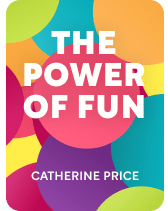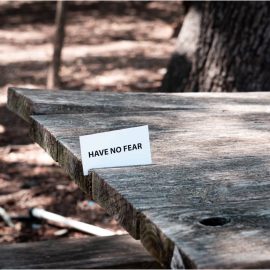

This article is an excerpt from the Shortform book guide to "The Power of Fun" by Catherine Price. Shortform has the world's best summaries and analyses of books you should be reading.
Like this article? Sign up for a free trial here.
Are you a rule keeper or a rule breaker? What would happen if you pushed back against your own habits and others’ expectations?
In The Power of Fun, Catherine Price uses research and personal anecdotes to explain why fun is fundamental to living a happy and healthy life and how everyone can start having more fun. One of these ways is to push the boundaries of what’s perceived as normal for you and even society.
Keep reading to learn how to rebel and have more fun.
Pushing Boundaries
In her research, Price noticed an unexpected theme in many people’s experiences of True Fun. She found that fun often goes hand-in-hand with breaking rules, however harmless. She explains that play is often about behaving outside the norms of expected behavior or social structure, which often means engaging in small acts of rebellion.
But, as Price explains, to push boundaries, you need something to push against. She offers advice on how to rebel, providing a few suggestions of ways to push back and find mini acts of resistance that fit your personality.
(Shortform note: For most people, breaking rules is easier said than done. Psychological research suggests that people have an innate tendency to conform. Studies show that conformity is hardwired in the structure of the brain. For example, brain-based punishment warning systems are activated when we violate social norms, and individuals with damage in the prefrontal areas of the brain show an inability to behave in accordance with social norms even when they comprehend them. So while we often admire people who are able to think or act outside the norm, our own instincts are often to stick to the norm.)
You can push back against established patterns (what Price calls “habits and routines”). Many of us operate under a predictable schedule. You can rebel against this predictability by breaking with your normal pattern and introducing some novelty into your day. This can be as simple as changing up your regular takeout spot or taking a walk after dinner instead of turning on a TV show.
(Shortform note: Some argue that the key to happiness is finding a balance between novelty and routine. According to Arthur Brooks, host of the How to Build a Happy Life podcast, “neophilia”—the tendency to seek out new experiences—stimulates interest and curiosity, which promote overall well-being. However, neophilia can also lead to restless or impulsive behavior. To find a healthy balance, he suggests regularly challenging and experimenting with preferences, choosing curiosity over comfort, avoiding newness for its own sake, and making deliberate decisions rather than acting impulsively.)
Similarly, you can push back against traditions. Traditions are a powerful tool of connection, but only when you get to choose them. Changing traditions that you don’t like or that are no longer fun is a prime opportunity for rebellion.
(Shortform note: In Eight Dates, the authors suggest that starting new traditions also builds stability and intimacy in your relationships. If you’re feeling stuck in the traditions you grew up with, explore this list of 27 ideas for new family traditions, which includes ideas like family game nights or watching the sunrise together on the first day of summer.)

———End of Preview———
Like what you just read? Read the rest of the world's best book summary and analysis of Catherine Price's "The Power of Fun" at Shortform.
Here's what you'll find in our full The Power of Fun summary:
- Why fun is fundamental to living a happy and healthy life
- How modern society has made it harder to prioritize fun
- A step-by-step guide to invite more fun into your life






